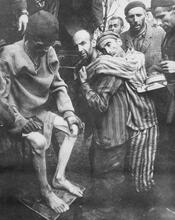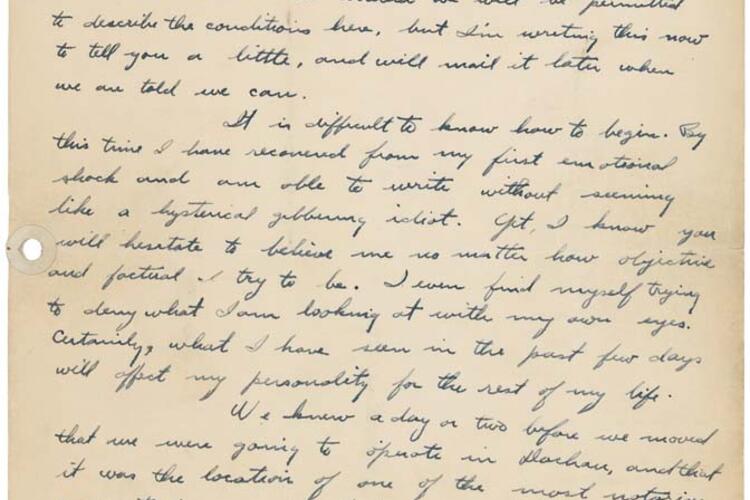Never Forget: Remembering the Holocaust
75th Anniversary of the Liberation of Auschwitz
On January 27, 1945, Soviet forces liberated the Auschwitz concentration camp complex in German-occupied Poland. Russian soldiers discovered thousands of sick, dying, and dead prisoners when they entered the complex of concentration camps, forced labor camps, and a killing center abandoned by the Nazis. The Schutzstaffel (SS), Hitler's paramilitary organization, had attempted to destroy the camp before fleeing and forcing 60,000 prisoners on a westward "death march." Their efforts did little to conceal abundant evidence of mass murder and other atrocities that claimed the lives of more than 1.1 million prisoners.
Auschwitz was the largest camp created by Nazi Germany and its collaborators to imprison and murder people they perceived as a "racial" or political threat, especially European Jews. By the end of World War II, the Holocaust had claimed the lives of over 6 million Jewish people—nearly two out of every three in Europe.

Former prisoners at Wobbelin Concentration Camp after its liberation by the 82nd Airborne, May 4, 1945. National Archives, Records of the Office of the Chief Signal Officer
Former prisoners at Wobbelin Concentration Camp after its liberation by the 82nd Airborne, May 4, 1945. National Archives, Records of the Office of the Chief Signal Officer
“I even find myself trying to deny what I am looking at with my own eyes”
— Harold Porter
The full scope of Nazi atrocities grew clearer with every concentration camp liberated and mass grave discovered by Allied forces as they advanced across Europe in the final months of World War II. Army medic Harold Porter penned this graphic description of the horrific scene at the newly liberated Dachau concentration camp on the former camp commandant's stationery. Grappling with a grisly reality that they knew defied belief, Porter's letter home acknowledged that "it is easy to read about atrocities, but they must be seen before they can be believed."
More resources on Holocaust Remembrance Day and International Holocaust Remembrance Day from the National Archives.
